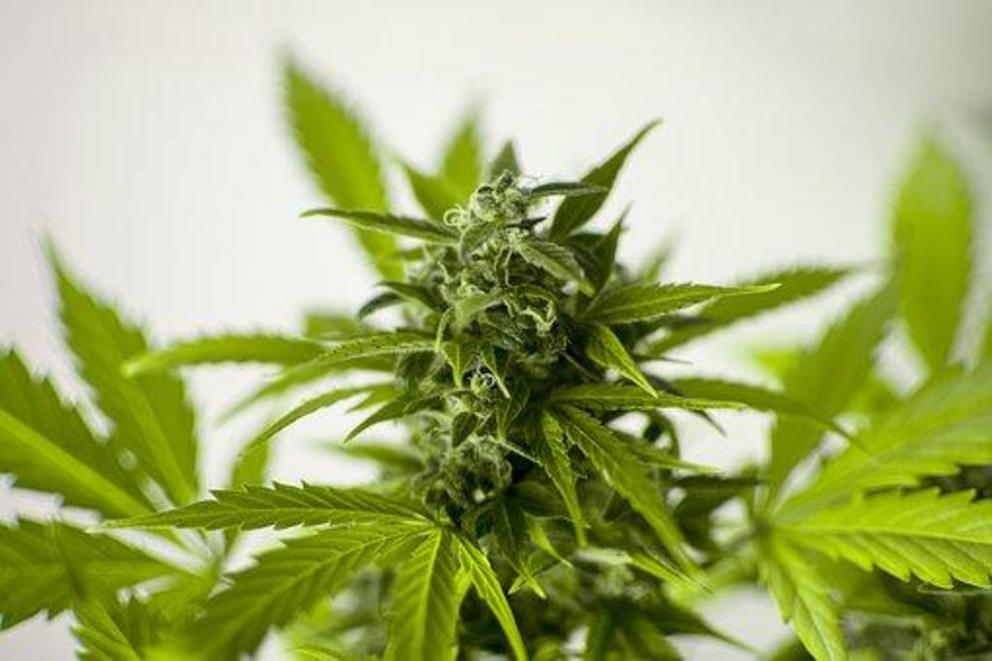Study: cannabis more effective than pharmaceutical drugs for age-related neurodegenerative diseases like Alzheimer's
 Singer and song-writer Willie Nelson, a known avid marijuana user, is still going strong at age 85.
Singer and song-writer Willie Nelson, a known avid marijuana user, is still going strong at age 85.
The prevailing safety concerns about marijuana from mainstream medicine, mainstream media, and government officials are focused on the brain. Somehow getting “high on pot” is associated with brain damage. And brain damage is the battle cry of marijuana prohibitionists.
This is one factor that has contributed toward cannabidiol’s (CBD) more widespread acceptance for medicinal purposes for children and adults.
CBD is without THC (tetrahydrocannabinol), the cannabinoid among over 100 in cannabis that has the psychotropic effect of euphoria for most. The few who get disturbed from this effect are often unable to “go with the flow” and experience confusion, anxiety, fear, or paranoia.
But these negative sensations do not induce physiological brain damage, and it’s possible for some individuals to suffer psychologically from an adverse mental effect with just about any mental or emotional trauma.
An earlier Health Impact News article presented the truth about this myth and how it started. It also provides information that points out the fact that cannabis is a brain health herb.
In fact, full spectrum cannabis with THC included has been reported empirically by individuals and scientific studies to do the opposite of damaging the brain: It apparently heals brain damage.
Study Demonstrates THC’s Ability to Reverse Amyloid Plaque
A June 2016 in-vitro study titled, Amyloid proteotoxicity initiates an inflammatory response blocked by cannabinoids, published in Nature Partner Journal – Aging and Mechanics of Disease, used a cultured brain tissue to better study the biochemical and cellular mechanics involved.
The study was conducted at the Salk Institute of La Jolla, California, and coordinated with the University of California in San Diego. The study was funded by The Burns Foundation, The Bundy Foundation, and, surprisingly, the National Institutes of Health (NIH).
There have been other similar studies prior to 2016, but this one appears to be one of the most compelling and unique studies. It discovered cannabis with THC removes the beta-protein from within brain cells. This protein is toxic and capable of creating an inflammatory response within the cell.
Previous cannabis and pharmaceutical studies and clinical efforts to reverse Alzheimer’s or other neuro-degenerative diseases focused on the amyloid plaque’s activity outside the cells. In other words, the focus was on the outcome of beta-amyloid plaque and symptoms of Alzheimer’s, not its intracellular cause.
From the study’s introduction:
Nerve cell death from the accumulation of aggregated or amyloid-like proteins is a common theme in most age-dependent neurodegenerative diseases. However, there are no drugs that significantly inhibit cell death associated with Alzheimer’s disease (AD), Parkinson’s or Huntington’s diseases. This could be because most interest has been in the late manifestations of the disease, not in the initial changes in cell metabolism that ultimately lead to nerve cell death. (emphasis added) (Source)
Salk Professor David Schubert, senior study report author explained:
Although other studies have offered evidence that cannabinoids might be neuroprotective against the symptoms of Alzheimer’s, we believe our study is the first to demonstrate that cannabinoids affect both inflammation and amyloid beta accumulation in nerve cells. (Source)
From the study’s results:
Cannabinoids such as tetrahydrocannabinol [THC] stimulate the removal of intraneuronal Aβ [amyloid beta], block the inflammatory response, and are protective. Altogether these data show that there is a complex and likely autocatalytic inflammatory response within nerve cells caused by the accumulation of intracellular Aβ, and that this early form of proteotoxicity can be blocked by the activation of cannabinoid receptors. (Complete study text)
The researchers also tested multiple compounds from pharmaceutical drugs. The results were poor, while cannabinoid results were very promising. You can find complete lists of those compounds at the very bottom of the complete study text under “supplementary lists”.
How This Translates to Real Life Situations
This means that using cannabis for any reason prevents amyloid beta formations and brain cell inflammation significantly, greatly reducing the risk of Alzheimer’s or other neurodegenerative diseases by eliminating the root cause before any symptoms arise, or stated simply, nipping it in the bud.
An excellent real-life example is country singer/songwriter and co-founder of FarmAid, Willie Nelson, who at 85 is still doing concert tours throughout the nation, despite rumors of failing health in his tour bus, in which a journalist once reported his inability to keep up with Willie’s pot puffing. Now he uses a heated vaporizer instead of smoking joints to avoid harming his throat. (Source)
This is not an endorsement of heavy pot smoking for recreational purposes. This is a real-life example of how cannabis does NOT kill brain cells.
Nevertheless, mainstream media journalists who rely on available public medical “experts” repeatedly parrot their concerns about negative long-term effects of cannabis on the brain.
Wherever cannabis has been legalized to any extent, there is a growing trend among seniors who are dropping their prescription medications by replacing them with marijuana. (Source)
Ignoring this study and others while inhibiting unbiased cannabis research due to federal cannabis laws contributes to poor public health, iatrogenic diseases, and earlier deaths
As mentioned in this article’s featured study, there have been other similar tests in the past regarding cannabis’ efficacy and safety for treating or preventing Alzheimer’s disease.

